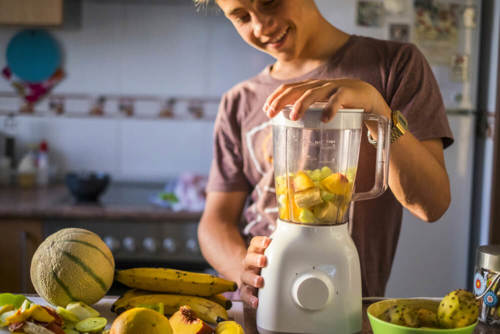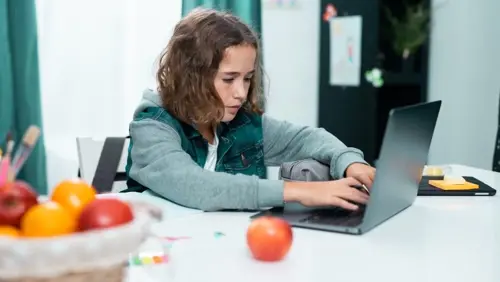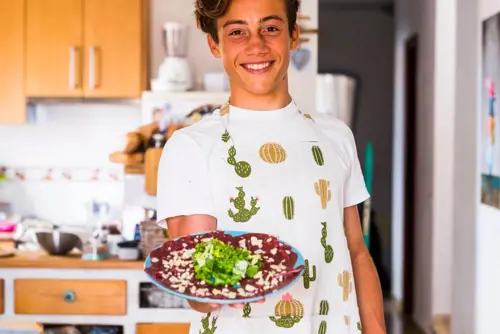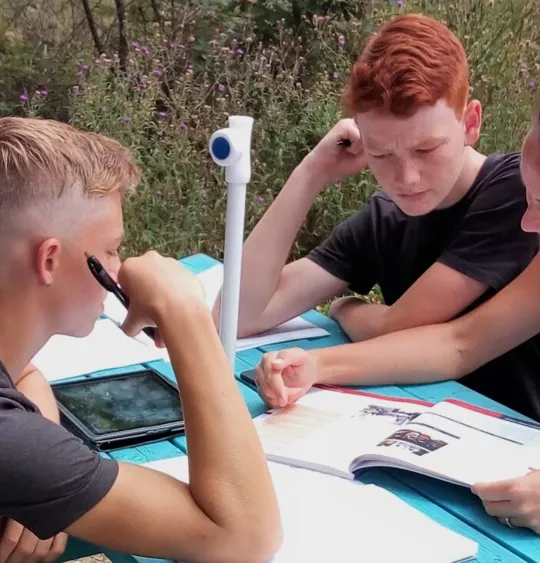In order for children to be the best versions of themselves a healthy and nutritious diet is paramount. This is not anything new, but it is a good reminder, especially when it comes to learning. Whether your child is not big on breakfast, often skips meals, has too much of a sweet tooth or their food choices lack variety when it comes to what they fuel themselves with, we have a few ideas to share to encourage them to remember that you are what you eat…
Start as you plan to continue…
We all know that breakfast is regarded as the most important meal of the day, but let’s be honest, sometimes it just feels too early to get a whole meal in (for kids and parents alike)! However, when children skip the first meal of the day their mood and energy will dip before midday. They’re likely to feel irritable and lose concentration, which can be frustrating.

Luckily, with homeschooling, there’s no set time for ‘classwork’, but irrespective, breakfast sets the fuel foundation for the day. If your child is ‘breakfast averse’, try to get them involved in selecting what they’d like for the week ahead of time; write up a meal plan and include their input. If a meal is too heavy, choose to go with a healthy smoothie or vitamin-packed fresh juice to get the day started.

Eat the rainbow…
Incorporating as many different fruits and vegetables in an array of colours into your children’s meals means that they are feeding their body with various vitamins and nutrients.
‘Simply put, plants contain different pigments, or phytonutrients, which give them their colour,’ writes Canadian registered dietitian, Katey Davidson in an article for Healthline.com. ‘Different-coloured plants are linked to higher levels of specific nutrients and health benefits. While eating more vegetables and fruit is always a good idea, focusing on eating a variety of colours will increase your intake of different nutrients to benefit various areas of your health.’

Don’t forget fats, fibre and protein…
Apart from a good variety of fruit and veg, the other necessary additions to daily mealtimes for healthy brains are fats, fibre and protein. Healthyfood.com writer, Caroline Trickey notes, ‘As the brain is made up mostly of fat, brain cells need the right ratio of omega-6 and omega-3 fats to function optimally. Both are “essential fats”, which means the body can’t make them — so we need to eat foods that contain them.’ These can be found in raw nuts and seeds, particularly walnuts and linseeds, as well as fish.

Fibre and good protein are also essential. ‘Multigrain bread and crackers, traditional oats, pasta and brown basmati rice’ are great options. For protein, opt for ‘lean meat, fish, seafood, poultry, nuts and/or legumes, which are good sources of protein and iron,’ Caroline notes - eggs, milk, cheese and yoghurt are protein-rich too.

Teach them to cook and bake…
As suggested by Eatright.org, ‘The best way to teach kids about eating right is to get them into the kitchen to prepare healthy meals together. Cooking is a valuable life skill that teaches children about nutrition and food safety, as well as building math, science, literacy and fine motor skills. Cooking together can be a fun way to teach your child valuable skills, promote good nutrition and make long-lasting memories in the process.’
Children also become more invested and interested in things that they have helped to create. Give it a go!

Cook with us…
Cookery is one of the clubs we offer at Wolsey Hall Oxford as a part of our Community Website activities. We also have Art Club, Chess Club, Photography Club and more. Through all of these clubs we encourage our students to get involved and take on the friendly challenges. Get your children to join in and let them participate in the fun.












